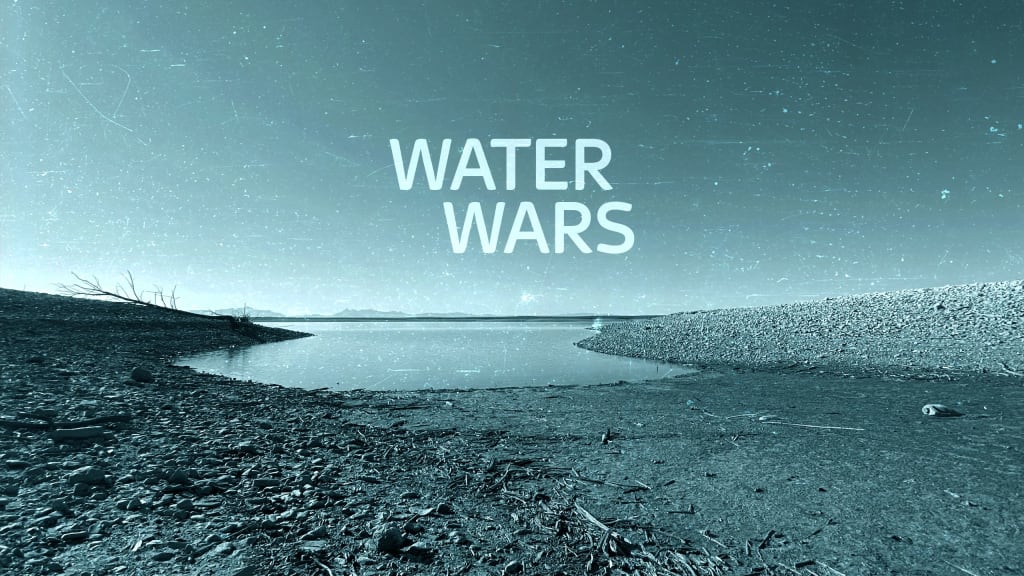WATER WAR
The Potential Precursor to World War III

In a world grappling with increasingly scarce resources and geopolitical tensions, the notion of a "water war" as a precursor to World War III is no longer just the stuff of dystopian fiction. As the global population burgeons, climate change disrupts established weather patterns, and water scarcity becomes an ever-looming reality, the potential for conflicts over water resources has gained the attention of experts, diplomats, and policy makers. While the concept of a water-based World War III might seem far-fetched, the underlying issues and challenges are undeniably real.
Water Scarcity: The Global Challenge
Water scarcity is not a hypothetical concern; it is a reality that many regions are already grappling with. According to the United Nations, by 2030, nearly half of the global population could be facing water scarcity. Factors such as population growth, urbanization, agricultural demands, and climate change-induced droughts are all contributing to this crisis.
In recent years, conflicts over water resources have already emerged in various parts of the world. The Middle East has long been a hotspot for water-related tensions, with disputes between countries like Israel, Palestine, and Jordan over shared water sources. The Indus River basin, which spans India and Pakistan, is another example of a region where water issues have fueled geopolitical tensions.
The Potential Triggers
Several factors could exacerbate water-related conflicts and possibly lead to a larger global conflict. One key factor is the uneven distribution of water resources across countries. Rivers and lakes that cross multiple nations can become potential flashpoints when upstream nations manipulate the flow of water, affecting downstream countries' access to this vital resource.
Climate change amplifies these challenges by altering precipitation patterns and accelerating the melting of glaciers, both of which can disrupt existing water-sharing arrangements and create new sources of tension. As water sources shrink, the competition for access to clean water becomes increasingly fierce, potentially pushing already strained diplomatic relations to the brink.
The Geopolitical Chessboard
Water scarcity doesn't just affect individual nations; it has the potential to reshape entire geopolitical landscapes. Countries rich in water resources might gain significant leverage, using their control over these resources to exert influence over neighboring states. Conversely, nations struggling with water scarcity could become more susceptible to external pressure and manipulation.
In some regions, the quest for water security has driven countries to seek alternative solutions. Desalination, the process of converting seawater into freshwater, is becoming an important tool for nations lacking access to freshwater sources. However, this technology is expensive and energy-intensive, leading to potential conflicts over energy resources as well.
The Path to Preventing "Water Wars"
The prospect of a water-based World War III is not inevitable, but proactive steps must be taken to prevent such a catastrophic scenario. International cooperation, diplomacy, and the development of effective water-sharing agreements are crucial. Organizations like the United Nations can play a pivotal role in mediating disputes and fostering collaborative approaches to water management.
Investing in water infrastructure and technology can also mitigate potential conflicts. Improved water management practices, efficient irrigation systems, and water conservation measures can help nations make the most of their available resources. Moreover, innovative solutions such as cloud seeding and water harvesting could offer alternative ways to augment water supplies.
Conclusion
While the idea of World War III being fought over water resources might sound like a Hollywood plot, the underlying challenges of water scarcity and its potential to spark conflicts are real and pressing. As climate change intensifies and global population continues to grow, the demand for water will only increase. Diplomacy, cooperation, and sustainable resource management are essential to prevent "water wars" and ensure that access to this essential resource remains equitable. The world must recognize that the specter of a "water war" is a stark reminder of the urgent need to address these challenges head-on, lest we risk the stability and prosperity of nations and the world as a whole.





Comments
There are no comments for this story
Be the first to respond and start the conversation.